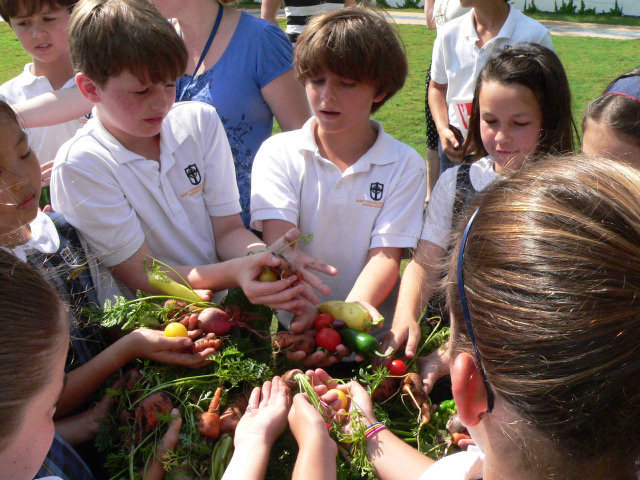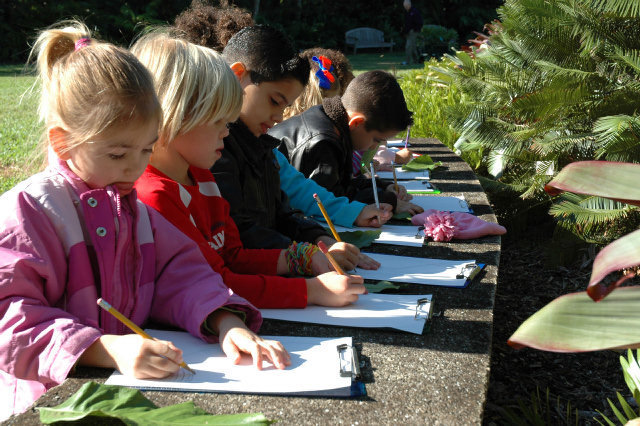Society too disconnected with nature

Do you notice a disconnect between the natural world and our daily life? Do you wonder why obesity is quickly becoming our country’s biggest health issue? Questions like these prompted author Richard Louv to coin the term “nature-deficit disorder” in response to the growing problems that stem from society’s dependence on the indoors. The concept that we need to unplug and spend more time outdoors is not a recent development; botanical educators have been sounding the same anthem for decades.
Why is it important to connect to our natural world? Can’t we just learn what we need from the Discovery Channel or our iPad?

While it may seem frivolous to schedule “outdoor time,” researchers are finding that it can contribute to our physical and mental health, especially in children. It has been found that children who have access to and utilize outdoor spaces are less likely to exhibit symptoms of attention deficit disorder and attention deficit hyperactivity disorder, have less anxiety and improved balance skills. They are also less likely to become overweight and are able to cope with stressful situations better than children who do not have outdoor experiences.
How can we overcome nature-deficit disorder? Believe it or not, pediatricians are now prescribing “nature” to their patients who are struggling with obesity and other health issues. Garden strolls and retreats to natural areas have long been used by physicians to help their patients.
You don’t have to wait for a doctor to tell you to get outside — be sure to enjoy those moments daily. Allow for children to have “unstructured” time when they can use their imaginations and explore their world.

Safe places to play are very important. Botanic gardens, school gardens, parks and even your own backyard can all be perfect areas to help children (and adults) overcome nature-deficit disorder.
As we dedicate time to observing nature, we develop a “sense of place.” What is a sense of place? It is something different for each of us but a very important component of a healthy life.
Knowing who you are and where you came from enables you to see where you want to go and what possibilities are in your future. As we move towards a global society where information is just a click away, these local connections become even more vital in building our concept of self.
When we look at the bigger picture, engaging in outdoor play not only benefits us physically, it also opens doors to understanding the natural rhythms and life cycles of our local environment. Getting to know your neighbors — local plants, animals and humans — allows you to see the interconnectedness of our ecosystem and the delicate balance we all must work to preserve.
Ready to accept the challenge? Go ahead, unplug your laptop, leave your phone at home and take a walk in the natural beauty that is all around you!
This article was written by Mary Dudley and originally published in the Miami Herald. Mary Dudley is Elementary Programs Coordinator at Fairchild Tropical Botanic Garden. Minor changes from the print version of this article were introduced to improve readability in a digital format.
